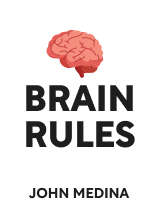

This article is an excerpt from the Shortform book guide to "Brain Rules" by John Medina. Shortform has the world's best summaries and analyses of books you should be reading.
Like this article? Sign up for a free trial here .
How does stress affect the body? What important aspects of everyday life are influenced by stress?
In his book Brain Rules, Dr. John Medina writes that stress can have a profound impact on the way you live your life. Not only does stress affect the body, but it can leave marks on your mental health and cognitive abilities as well.
Here are the health effects that stress can create on the body and mind.
Stress Can Hurt the Brain
Medina has explained that exercise and sleep are two factors that can benefit our cognitive health. He then turns his attention to another environmental influence: stress, which affects the body by hurting our cognitive health. He argues that stress interferes with our brain’s ability to learn because we haven’t evolved to handle it over a long period of time. Medina defines stress, distinguishes between acute and chronic stress, describes the cognitive (and physical) effects of stress, and discusses how stress can cause problems at home and at work.
Defining Stress
Stress can be hard to define because no single situation is stressful for everyone. Additionally, from a scientific perspective, all kinds of physiological arousal cause similar reactions in the body, whether it’s a stressful response or a pleasurable response. As a result, scientists can have a hard time distinguishing between physical manifestations of stress and other kinds of excitement.
Medina cites researchers Jeansok Kim and David Diamond, who came up with three criteria to determine if stress is affecting the body:
- The person has a clear physiological response, like sweating, crying, shouting, or shaking.
- The person wants to extricate themselves from the situation.
- The person feels that they’re out of control.
| How to Shift From Stress to Excitement You can use the similarities between stress and excitement to adopt a positive attitude in anxiety-inducing situations. Instead of trying to “calm down,” which is incredibly difficult when your body is in a state of stress, shift your mindset to excitement. This is an easier response because you can improve your mood without changing your physical responses. To shift from stress or anxiety to excitement, researchers recommend you begin thinking of “threats” as “opportunities.” For example, if you’re nervous about an upcoming job interview, try thinking of it as an opportunity to further your career, rather than letting the stress affect the body. |
Cognitive Health Effects of Stress
Medina discusses the negative cognitive effects that chronic stress can cause. Our memory and ability to solve problems can particularly be affected by long-term stress on the body.
The Effects of Stress on Memory
Medina writes that short-term stress can actually improve memory. This is because the hippocampus, which stores memories, has a lot of receptors for the hormone cortisol, which is a hormone that your body produces during acute stress. Thus, during times of acute stress, you can retrieve information and solve problems more effectively because of the additional cortisol. Medina postulates that our brains have developed in this way because of the evolutionary need to remember how to respond to stressful situations and to think on our feet.
However, chronic stress affect your body’s memory by sending excessive amounts of cortisol to the hippocampus, which can disconnect neural networks. This causes memory loss and can prevent new cells from being created—and thus hurt your ability to form new memories.
The Effects of Stress on Learning
Because of its profound effects on memory, chronic stress can severely hinder learning. Studies show that adults with chronic stress perform worse than low-stress adults on tests related to memory, math, language, focus, and the ability to use pre-existing knowledge to solve new problems.
(Shortform note: Studies have noted two particularly significant impacts stress can have on learning: It damages the ability to retrieve information, which makes testing difficult, and damages the ability to change memories based on new information, which makes it difficult to build on pre-existing knowledge.)
Chronic stress can also contribute to clinical depression, which harms many important cognitive functions. These include not only memory and language, already established to be harmed by stress, but also spatial awareness, problem-solving & abstract reasoning, and quantitative reasoning.
Physiological Effects of Stress On the Body
Medina argues that the physiological effects of stress on the body, including cardiovascular disease and immune system problems, can affect our body and mind’s ability to learn at school or to perform at work. Those who suffer physical symptoms of stress, especially those whose immune systems are weakened, may need to take more time off from work or school than a low-stress person. Their ability to keep up with class material, or effectively fulfill the requirements of their job, would then be lessened. In this sense, physiological symptoms of stress can also set us back cognitively.
(Shortform note: The physiological effects of chronic stress on the body can harm your ability to go about your day-to-day life in the long term, so experts recommend managing sources of chronic stress. To do this, identify what causes of stress in your life can be changed—for example, frequently being late to work or spending less time with friends than you’d like. Then, limit the amount of stress you deal with in a given day by planning your days in advance, and start doing relaxing or pleasurable activities when you can.)

———End of Preview———
Like what you just read? Read the rest of the world's best book summary and analysis of John Medina's "Brain Rules" at Shortform .
Here's what you'll find in our full Brain Rules summary :
- An explanation of how the brain works in a simple and accessible way
- The 12 rules that help fulfill the core functions of the brain
- How to improve your thinking and learning abilities






